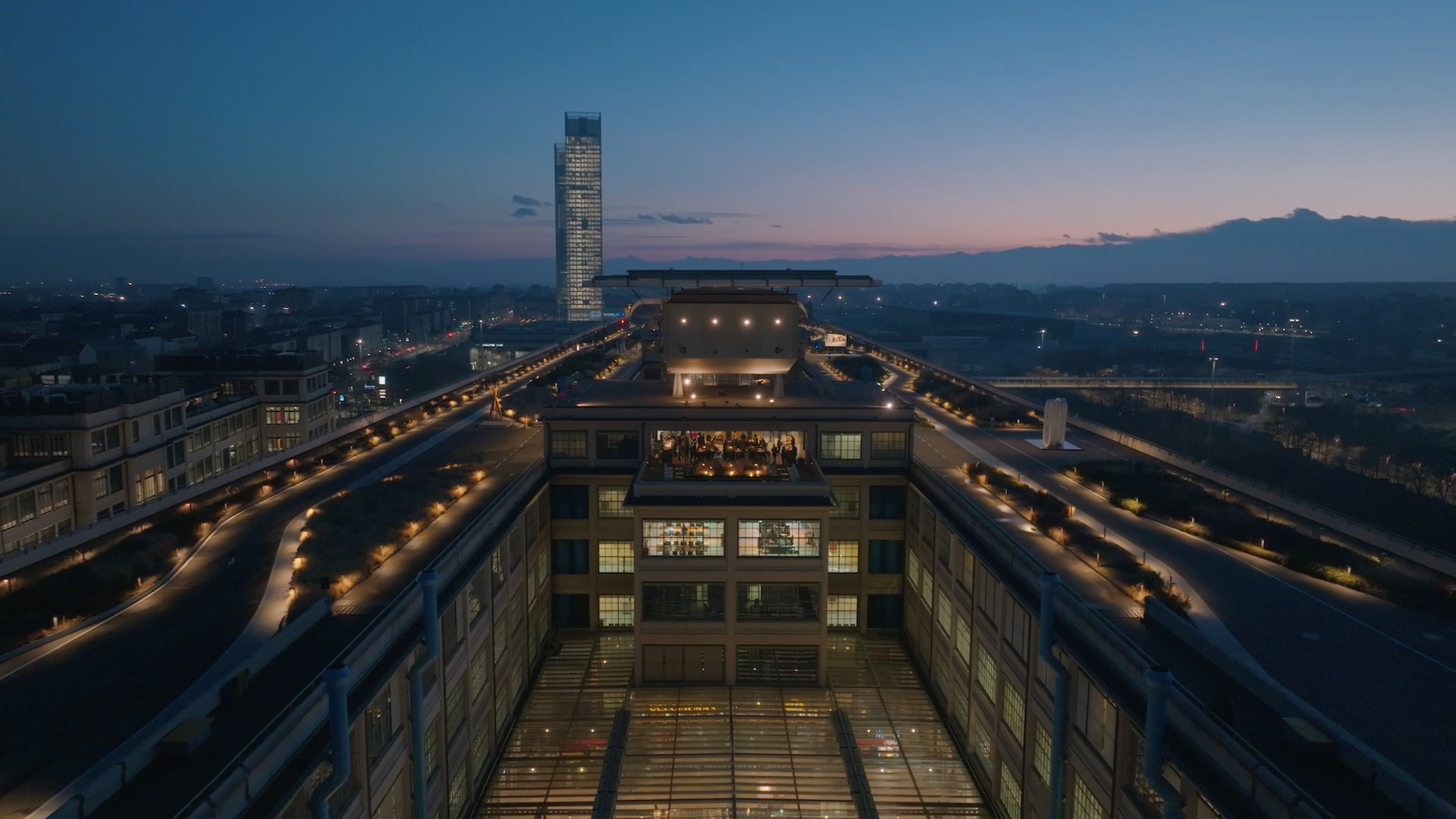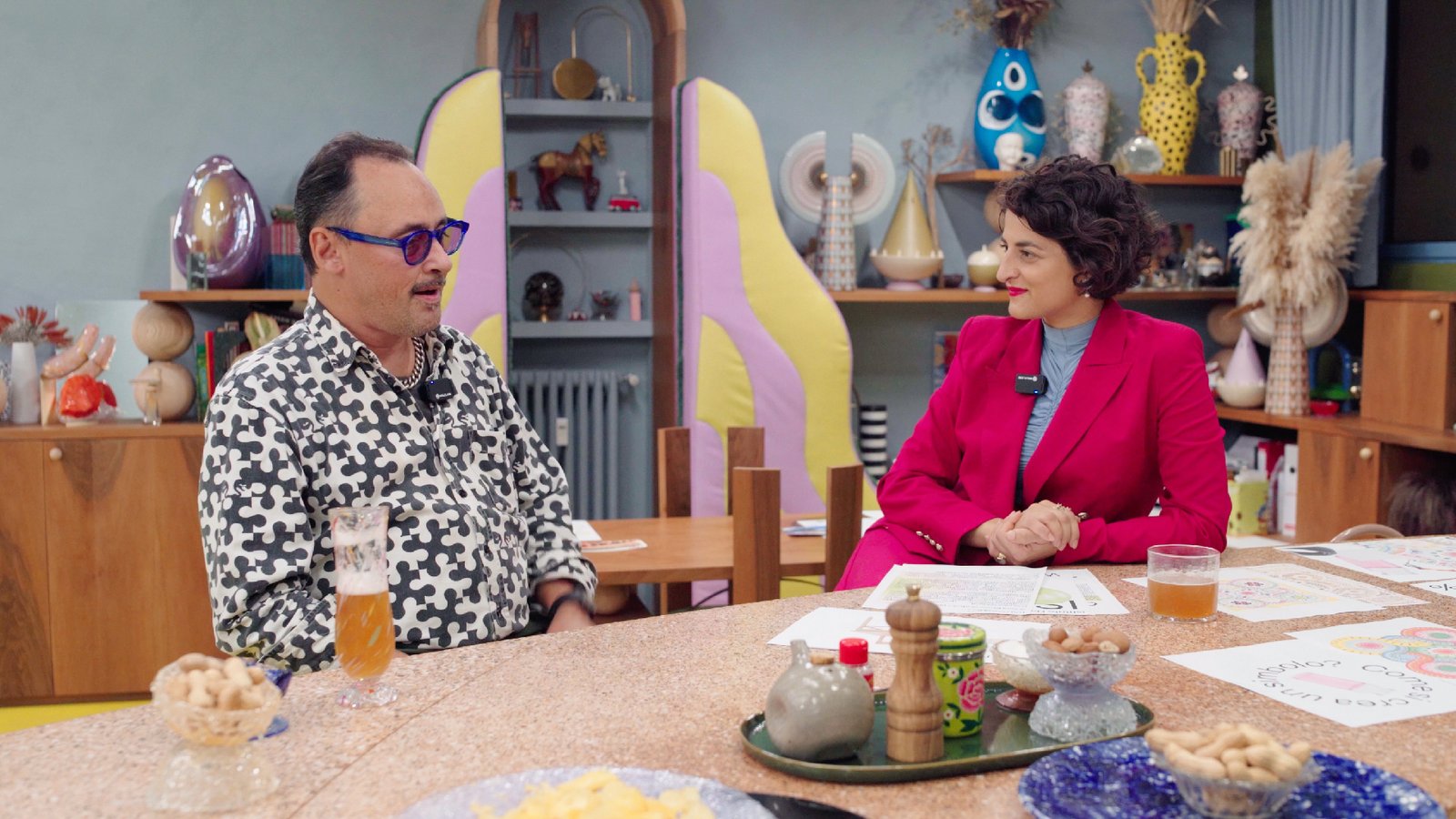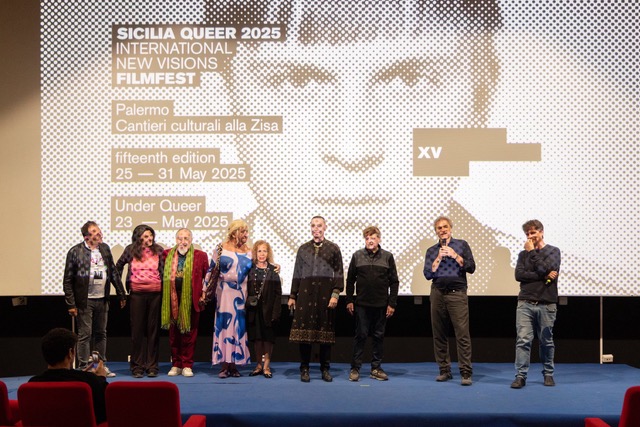
Sicilia Queer Filmfest 2025
The Sicilian festival celebrates its fifteenth anniversary with films, retrospectives, literature, and visual art: seven days of queer and inclusive cinema at the Cantieri Culturali alla Zisa in Palermo.
The Sicilia Queer Filmfest celebrates its fifteenth anniversary with seven days of programming, from May 25 to May 31, at the Cinema De Seta and other venues within the Cantieri Culturali alla Zisa in Palermo. The event offers a prism of visual languages through a diverse, inclusive cinema that challenges norms—a longstanding appointment that breathes deeply and meaningfully on shared, significant themes.
Artistic director Andrea Inzerillo describes it as “a space for research, for sharing non-conforming experiences and imaginations, a place where cinematic and existential pluralities and otherness find ground for elaboration and affirmation—to refuse the status quo and envision another possible world.”
I would also say it offers a much-needed perspective, now more than ever, as an antidote to the drift of narrow-minded thinking.
Alongside the usual wide-ranging selection of films—79 titles in total, including 5 world premieres and 23 national premieres—this year introduces the first edition of UNDER QUEER, a mini-festival supported by SIAE and MiC as part of the “Per Chi Crea” program. It’s fully dedicated to five young Italian queer filmmakers.
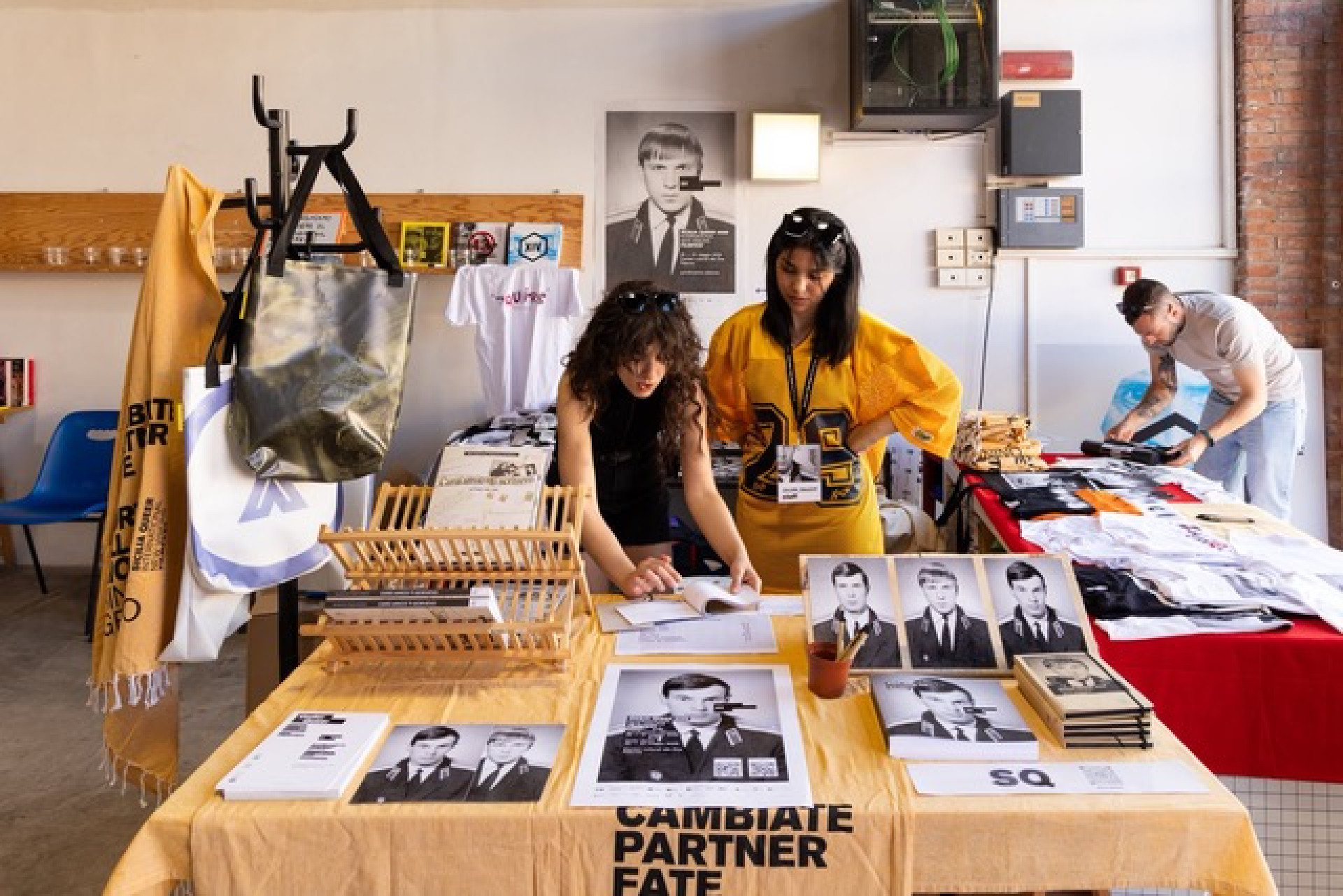 Sicilia Queer filmfest 2025
Sicilia Queer filmfest 2025
The competitive sections feature 7 feature films—all national premieres—in the Nuove Visioni competition, with entries from France, Germany, Spain, the USA, Brazil, and Taiwan. The Queer Short competition includes 12 short films with 7 national and 2 world premieres, exploring LGBTQIAP+ themes through experimental formats and video essays on love, forbidden passions, and geographic dislocations. The international jury includes Marco Müller, Lionel Baier, Milena Czernovsky, Elene Naveriani, and Nele Wohlatz.
The Presenze section presents a retrospective dedicated to Portuguese directors Joaquim Pinto and Nuno Leonel, featuring documentaries and fiction, with some restorations screened for the first time in Italy thanks to Cinemateca Portuguesa. The Retrovie Italiane section, curated by Umberto Cantone, pays tribute to Laura Morante, lead in Pinto’s 1989 fiction film Onde bate o sol.
Outside of competition, the Panorama Queer section includes 18 films, among them the national premiere of Je suis déjà mort trois fois, Maxence Vassilyevitch’s tribute to legendary French actor and director Jacques Nolot. Not to be missed is Quir by Nicola Bellucci, a collective portrait of resistance in a Palermo that’s often deaf and hostile, featuring Massimo Milani, Gino Campanella, Ernesto Tomasini, Vivian Bellina, and Charlie Abbadessa.
The closing film is Reas by Argentina’s Lola Arias, set in the former Caseros prison in Buenos Aires, blending documentary and musical to tell real stories of cisgender women and transgender people.
Added to the official programming are two research segments curated by young international scholars: Bodies in Struggle, curated by Matteo Giampetruzzi, presents eleven rare films exploring queerness and pathology, focused on the Anglo-American HIV crisis of the 1980s, and Homintern, curated by Romanian Călin Boto, features six films capturing the oddities, contradictions, misunderstandings, and pleasures of sexuality under conservative Eastern European communism.
The Heterotopias section explores cinema and stories from conflict-ridden areas—social, cultural, and economic—and this year focuses on Georgia, curated by Italo-Georgian writer Ruska Jorjoliani.
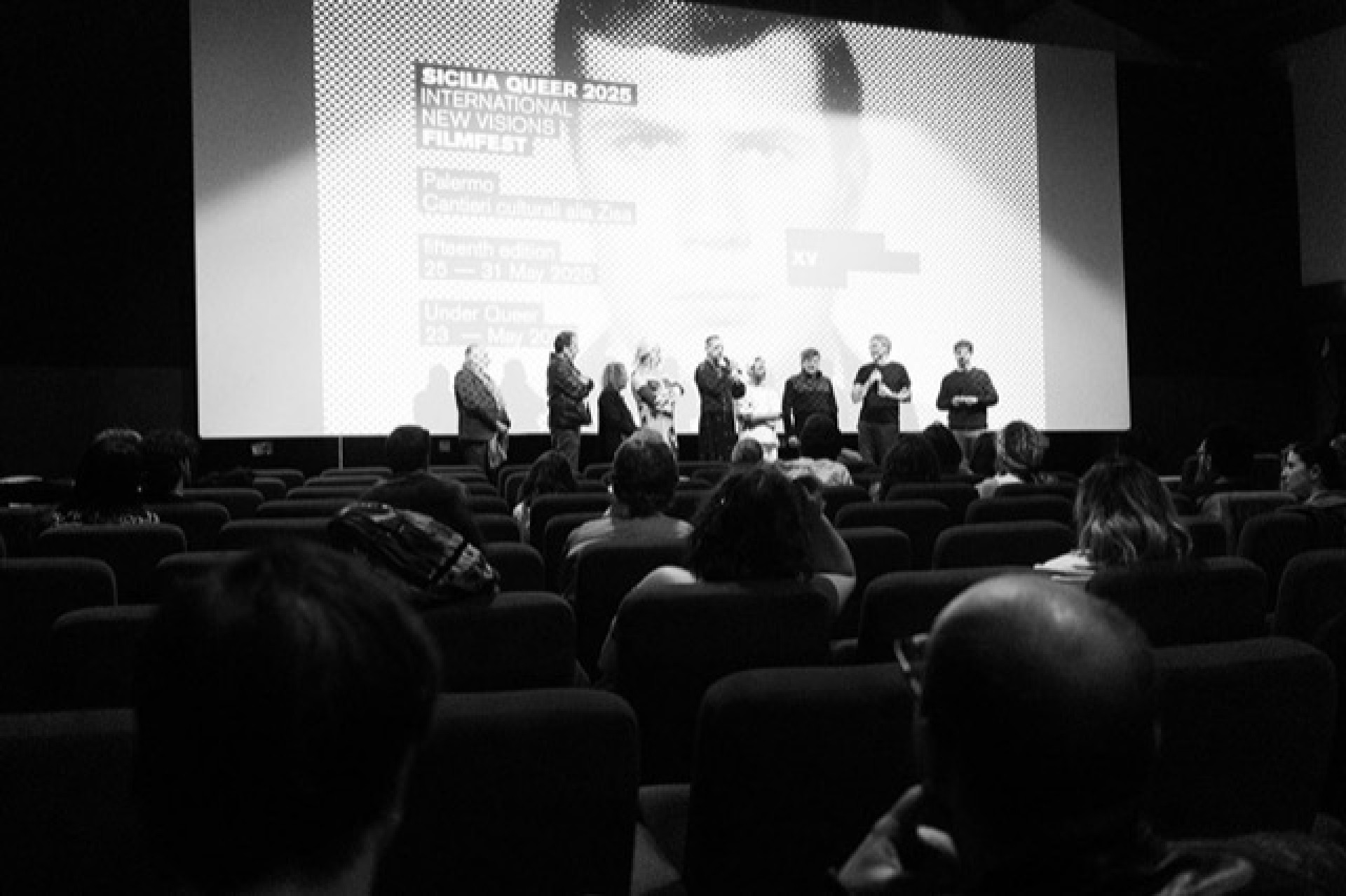 Sicilia Queer filmfest 2025
Sicilia Queer filmfest 2025
At the cinema, the Queer Literatures section features Caro amico ti scrivevo. Lettere 1991/1995 e altri scritti by Massimo Verdastro/Nino Gennaro – the unpublished correspondence of Nino Gennaro, with a preface by Lina Prosa; Manomissione, the new novel by Domenico Conoscenti; Homosexual: Oppression and Liberation by Dennis Altman, edited by Lorenzo Bernini.
The Visual Arts section, curated by Verein Düsseldorf Palermo, includes the project Wendepunkt by Antonia Gruber and Roberto Orlando at the Haus der Kunst space – Cantieri Culturali alla Zisa – where, through photography and installations, the artists explore the turning point and transformation, both on an aesthetic and formal level.


